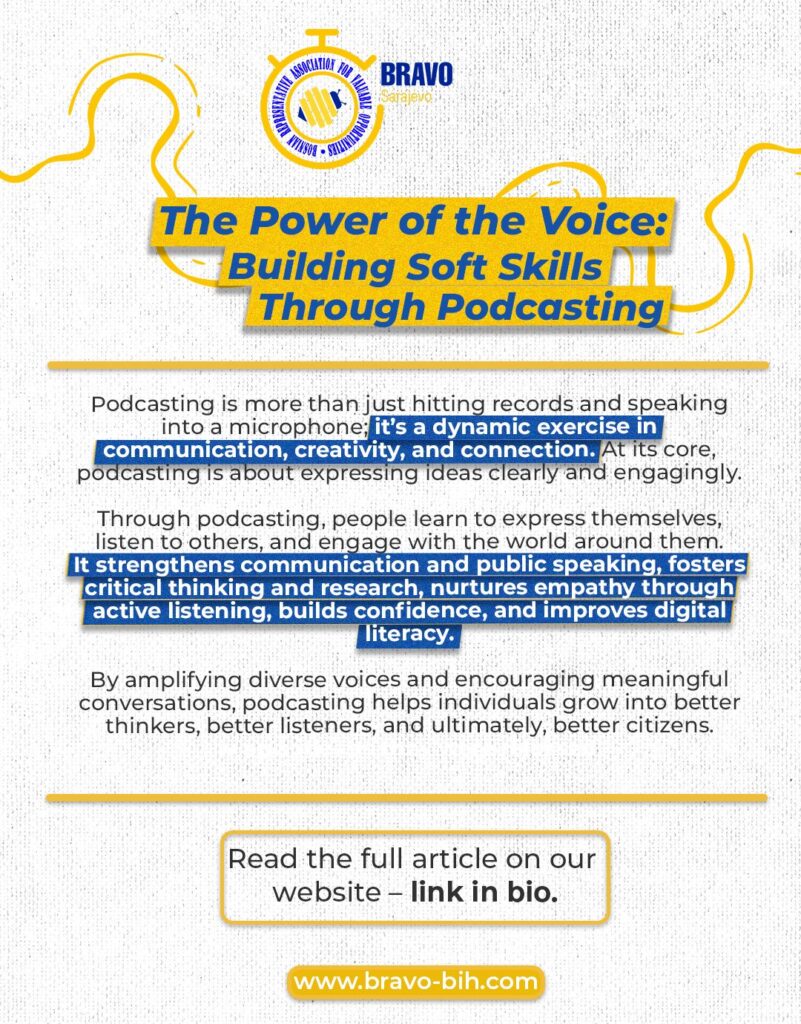
Podcasting is more than just hitting records and speaking into a microphone; it’s a dynamic exercise in communication, creativity, and connection. At its core, podcasting is about expressing ideas clearly and engagingly. Whether scripting an episode or crafting a compelling narrative, podcasters are constantly honing their ability to communicate effectively. They ask themselves: How can I talk about this subject in a way that captures — and keeps — the listener’s attention? This question lies at the heart of powerful storytelling and reflects the deeper skills podcasting helps develop, including civic engagement, leadership, and public presence.
Research and Critical Thinking: Spreading the Word
A good podcaster is always well-informed about the topic they are working on. They research thoroughly, gather relevant information, and translate it into audio content that is accessible to a wider audience. In this way, podcasters take on a role similar to that of journalists — investigating, thinking critically, and sharing their insights to spark reflection in others.
In a sense, they help spread awareness and encourage informed dialogue, both of which are crucial to strengthening democracy.
Podcasting encourages creators to become more aware of the world around them and to think deeply about the messages they choose to share.
Empathy and Active Listening: The Art of the Interview
However, podcasting is not only about speaking; it’s also deeply rooted in the ability to listen. Interviewing, in particular, is a major part of a podcaster’s work. As one expert put it, “An interview is more than just asking questions and waiting for a response. You need to be able to ask the right questions to get the best content for your audience.”
To create a meaningful interview, podcasters must understand their guests’ feelings and perspectives. In this sense, podcasting is an experience that develops empathy and deep listening skills. These are not just podcasting tools — they are essential life skills.
Digital Literacy and Confidence: Creating with Technology
Podcasting also strengthens digital literacy by requiring the use of technology to find, evaluate, organise, create, and share information in a responsible way. The way a podcast sounds is almost as important as the content itself. That’s why it’s important to become familiar with editing software and basic sound design.
There are plenty of tutorials and courses that can help you get started, but often, learning by doing is more than enough to create a great podcast. One of podcasting’s greatest advantages is its accessibility. It doesn’t require expensive equipment or complicated platforms. Anyone with a voice and an idea can get started.
The process of drafting, recording, editing, and publishing a podcast not only teaches technical skills — it also builds self-confidence. Having your thoughts recorded and shared with the world is empowering.
Conclusion: Podcasting as a Path to Citizenship
Through podcasting, people learn to express themselves, listen to others, and engage with the world around them.
It strengthens communication and public speaking, fosters critical thinking and research, nurtures empathy through active listening, builds confidence, and improves digital literacy.
These skills go far beyond content creation — they are key to active citizenship and democratic participation. In a world where having a voice and using it wisely is more important than ever, podcasting has become more than a hobby or creative outlet. It becomes a powerful tool for personal and social development.
By amplifying diverse voices and encouraging meaningful conversations, podcasting helps individuals grow into better thinkers, better listeners, and ultimately, better citizens.
